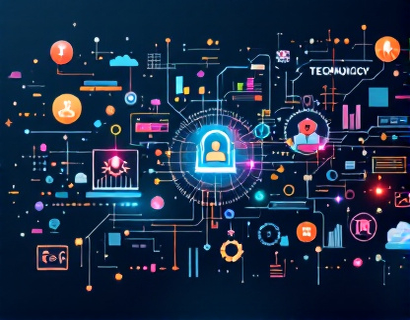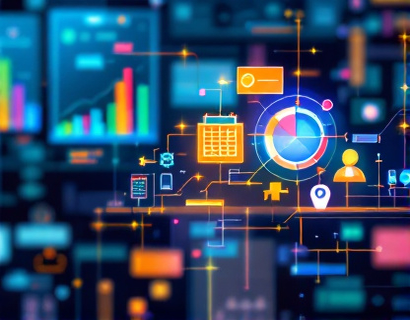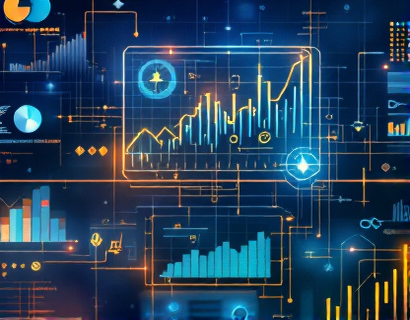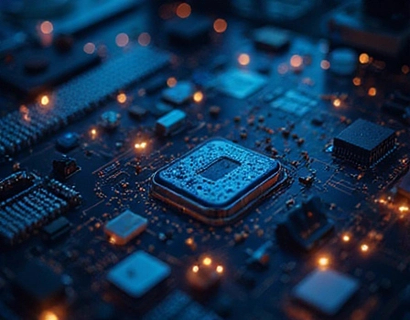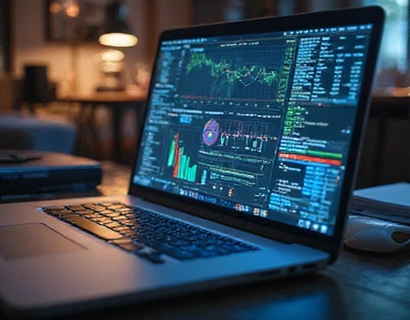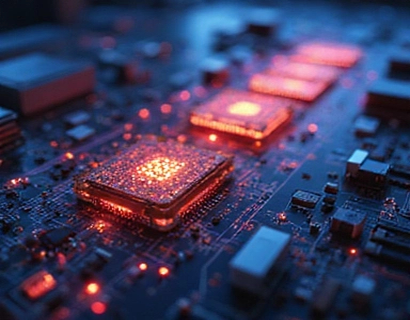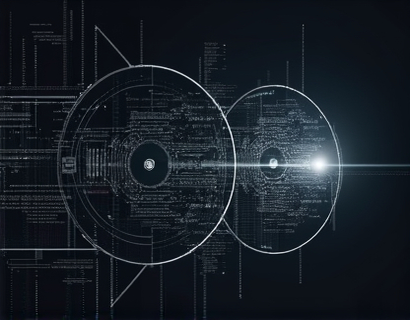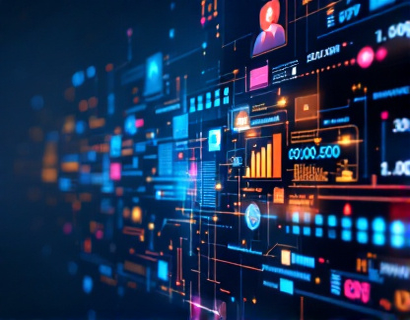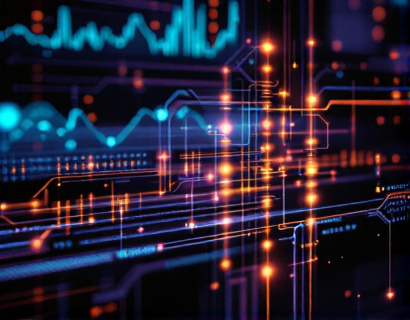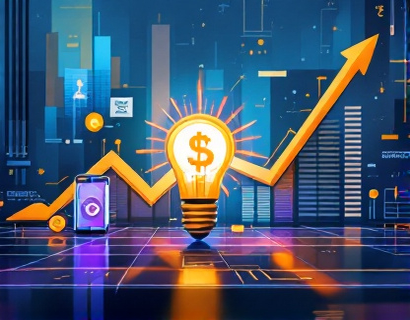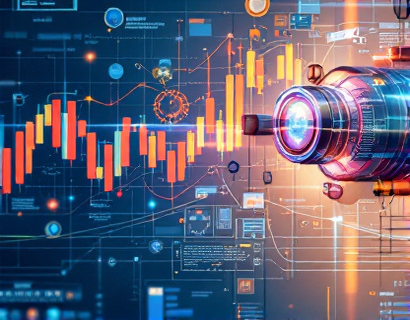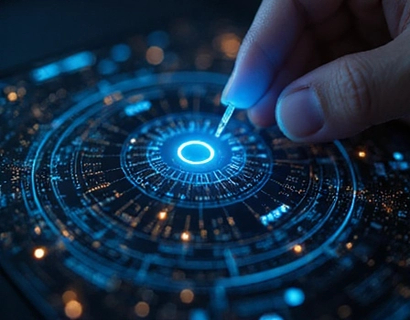Decentralized Innovation: Unleashing the Future with Crypto and AI
The intersection of cryptocurrency and artificial intelligence (AI) is giving birth to a new era of decentralized innovation. This fusion is not just a technological advancement but a paradigm shift that is redefining how we interact with digital services and applications. The emergence of decentralized applications (dApps) and AI-driven services is transforming the digital landscape, offering unprecedented levels of security, transparency, and user engagement. This article delves into the transformative power of merging crypto and AI, exploring the key developments, potential impacts, and the future prospects of this exciting field.
To understand the significance of this convergence, it's essential to first grasp the individual potentials of cryptocurrency and AI. Cryptocurrency, particularly blockchain technology, has revolutionized the way we think about value, trust, and decentralization. Blockchain's inherent properties such as immutability, transparency, and security have made it a cornerstone for building trustless systems. On the other hand, AI has the capability to process and analyze vast amounts of data, learn from patterns, and make decisions with minimal human intervention. When these two technologies are combined, the possibilities become vast and transformative.
Decentralized Applications: The New Frontier
Decentralized applications, or dApps, are applications that run on a blockchain or a decentralized network, as opposed to traditional centralized applications. The core advantage of dApps is that they operate without a central authority, reducing the risk of censorship, fraud, and single points of failure. This decentralized nature aligns perfectly with the principles of blockchain, ensuring that the application's data and functions are distributed across a network of nodes.
One of the most significant aspects of dApps is their ability to leverage smart contracts. Smart contracts are self-executing contracts with the terms of the agreement directly written into code. They automatically enforce and execute the terms when predefined conditions are met, eliminating the need for intermediaries. This not only reduces costs but also increases efficiency and trust. For instance, in the realm of finance, smart contracts can automate complex financial transactions, ensuring that all parties adhere to the agreed terms without the need for banks or other financial institutions.
The integration of AI into dApps further enhances their capabilities. AI can be used to analyze data from the blockchain, providing insights and predictions that can inform decision-making processes. For example, in the insurance industry, AI-driven dApps can assess risk more accurately by analyzing historical data and real-time inputs, leading to more fair and personalized insurance policies. Similarly, in supply chain management, AI can optimize logistics and inventory management by predicting demand and identifying bottlenecks, all while ensuring transparency and traceability through the blockchain.
AI-Driven Services: Enhancing User Experiences
AI-driven services are not limited to dApps; they are also transforming traditional services by making them smarter, more efficient, and user-friendly. In the context of decentralized platforms, AI can enhance user experiences by personalizing content, improving user interfaces, and providing predictive recommendations. For instance, a decentralized social media platform can use AI to curate content based on user preferences and interactions, creating a more engaging and relevant experience.
Another area where AI is making a significant impact is in customer support. Chatbots powered by AI can provide 24/7 assistance, handling a wide range of queries and issues with high accuracy and speed. In a decentralized ecosystem, these chatbots can be integrated into various dApps, ensuring consistent and reliable support across the platform. This not only improves user satisfaction but also reduces the operational costs associated with traditional customer support systems.
AI can also play a crucial role in security and fraud detection. Decentralized platforms are not immune to security threats, and AI can help mitigate these risks by identifying and responding to suspicious activities in real-time. Machine learning algorithms can analyze patterns and anomalies in transaction data, flagging potential fraud before it occurs. This proactive approach to security is essential for maintaining trust and integrity in decentralized systems.
Interoperability and Ecosystem Integration
One of the key challenges in the decentralized space is interoperability—ensuring that different blockchain networks and dApps can communicate and work together seamlessly. AI can play a pivotal role in addressing this challenge by developing intelligent protocols and middleware that facilitate cross-chain interactions. For example, AI-driven bridges can automatically convert assets and data between different blockchains, enabling a more interconnected and efficient ecosystem.
Moreover, AI can optimize the deployment and management of decentralized applications. By analyzing network conditions, user behavior, and resource utilization, AI can dynamically adjust the performance and scalability of dApps. This ensures that applications run smoothly, even under high load, providing a consistent and reliable user experience. In a decentralized ecosystem, where resources are distributed and managed collectively, such optimization is crucial for maintaining the overall health and functionality of the network.
Case Studies and Real-World Applications
To better understand the practical implications of combining crypto and AI, let's look at some real-world examples. One notable case is the use of AI in decentralized finance (DeFi) platforms. These platforms leverage AI algorithms to offer advanced trading strategies, risk management, and portfolio optimization. For instance, an AI-powered DeFi platform can analyze market trends and automatically execute trades based on predefined criteria, helping users maximize their returns while minimizing risks.
Another example is the application of AI in decentralized identity management. Traditional identity verification processes are often centralized and vulnerable to breaches. AI-driven decentralized identity solutions can provide users with control over their personal data, using blockchain to store and manage identity credentials securely. AI can enhance this process by verifying identities through biometric data and behavioral patterns, ensuring both security and convenience.
In the realm of gaming, decentralized gaming platforms are leveraging AI to create more immersive and dynamic gaming experiences. AI can generate procedural content, adapt difficulty levels based on player performance, and even create non-playable characters (NPCs) that behave realistically. This not only enhances the gaming experience but also opens up new revenue models, such as in-game asset ownership and trading, facilitated by blockchain technology.
Challenges and Considerations
While the potential of combining crypto and AI is immense, there are several challenges and considerations that need to be addressed. One of the primary concerns is the regulatory landscape. As decentralized technologies and AI continue to evolve, regulatory bodies are grappling with how to oversee these innovations. Ensuring compliance while fostering innovation is a delicate balance that requires collaboration between technologists, policymakers, and industry stakeholders.
Another challenge is the technical complexity involved in integrating AI with blockchain systems. Developing robust and secure AI models that can operate on decentralized networks requires advanced expertise and resources. Additionally, the computational demands of AI, especially for complex models, can strain the resources of decentralized networks, necessitating efficient and scalable solutions.
Privacy is also a critical issue. While blockchain provides transparency, it can also expose sensitive data. AI-driven solutions must be designed with privacy in mind, using techniques such as homomorphic encryption and zero-knowledge proofs to protect user data while still enabling useful computations.
Future Prospects
Looking ahead, the convergence of crypto and AI is poised to drive significant advancements in various domains. In healthcare, AI-powered decentralized platforms can securely share and analyze medical data, leading to more accurate diagnoses and personalized treatments. In the Internet of Things (IoT), AI can optimize the management of decentralized devices, ensuring efficient resource utilization and enhanced security.
The financial sector stands to benefit greatly from this fusion, with AI-driven DeFi platforms offering more sophisticated and accessible financial services. Decentralized autonomous organizations (DAOs) can leverage AI to make collective decision-making more informed and efficient, potentially redefining governance and community management.
In conclusion, the integration of cryptocurrency and AI is not just a technological trend but a transformative force that is reshaping the digital world. By harnessing the strengths of both technologies, we can create more secure, transparent, and user-centric applications and services. As we continue to explore and innovate at this intersection, the future of decentralized innovation looks brighter and more promising than ever.








